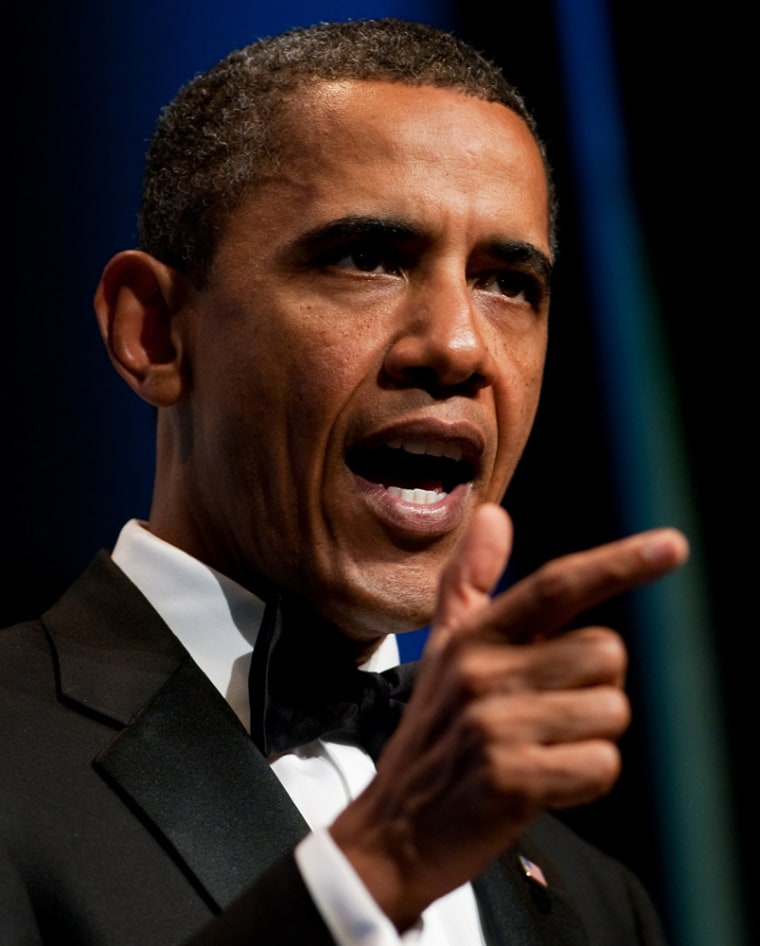President Barack Obama came out swinging against Republicans in a fiery campaign-season speech to black lawmakers Saturday night, urging them to "guard the change" he was delivering with the kind of organizing that propelled the civil rights movement.
With the GOP hoping to regain power on Capitol Hill in the November election, Obama described his adversaries as "a crowd ... that wants to do what's right politically, instead of what's right — period." He never named the opposing party, referring to it as "the other side."
"I need everybody here to go back to your neighborhoods, and your workplaces, to your churches, and barbershops, and beauty shops. Tell them we have more work to do. Tell them we can't wait to organize. Tell them that the time for action is now," Obama said in his remarks.
The words of America's first black president showed a deliberate effort to recapture the enthusiasm that had helped him win the White House in 2008, after polls showed African- Americans much less likely to vote than whites this year.
"The last election was a changing of the guard — now we need to guard the change," Obama said.
He said the recession had struck "with a particular vengeance on African-American communities" and he defended his approach to reviving the sour economy.
Members of "the other side," Obama said, "want to take us backward. We want to move America forward. In fact, they're betting that you'll come down with a case of amnesia. That you'll forget about what their agenda did to this country when they were in charge. Remember, these are the folks who spent almost a decade driving the economy into a ditch. And now they're asking for the keys back."
With polls showing his party facing a wide "enthusiasm gap" with the GOP, Obama sought to rally an important constituency in his speech.
"What made the civil rights movement possible were foot soldiers like so many of you, sitting down at lunch counters and standing up for freedom. What made it possible for me to be here today are Americans throughout our history making our union more equal, making our union more just, making our union more perfect," Obama said. "That's what we need again."
The caucus is reeling from ethics charges against two leading members, Democratic Reps. Charles Rangel of New York and Maxine Waters of California. Republicans are preparing TV ads spotlighting the cases, even though House trials are now not expected until after the November election.
The cases complicate an already difficulty electoral landscape for Obama's party, with polls showing Republicans energized and Democrats unenthusiastic about the vote.
A recent AP-GfK poll found that 84 percent of Republicans believe their party will seize control of Congress in November. Just 51 percent of Democrats thought their party would keep it.
While neither party's rank and file thinks much of politics these days, Democrats' feelings have slumped badly. Just 26 percent said they're "excited," compared with 80 percent when Obama was elected.
For Obama, the caucus dinner at the Washington Convention Center capped a week of concerted outreach to minority supporters, a traditional wellspring of Democratic strength.
The effort began Monday with a White House reception for black college officials. It included speeches by the president on Wednesday to the Congressional Hispanic Caucus and by first lady Michelle Obama to a black caucus legislative conference that same day.
Last week, Obama was interviewed on "The Tom Joyner Show" radio program, which enjoys a large black audience.
Black caucus members have been staunch backers of the first African-American president. But they've also voiced concern that he hasn't done enough to help struggling black families.
They point to persistent high inner-city unemployment and a new census report showing a jump in poverty on Obama's watch. The poverty rate was 14.3 percent, with the ranks of working-age poor at the highest since the 1960s. For blacks, the rate was 25.8 percent and for Hispanics it was 25.3 percent.
Obama told Joyner he knows unemployment has been "brutal," especially among African-Americans, but he compared the economy to a patient recovering from an accident. "It can't run yet, but it's walking," he said.
The president told the Hispanic group he is committed to an immigration overhaul, even though it has stalled in Congress. He blamed GOP opposition and said Hispanic voters should keep that in mind.
"You have every right to keep the heat on me and keep the heat on the Democrats," he said. "But don't forget who is standing with you, and who is standing against you. ... Your voice can make the difference."
As to the charges facing Waters and Rangel, Obama has mostly sought to keep his distance.
Rangel, a 40-year House veteran, won renomination Tuesday in a crowded Democratic field in his Harlem district in New York City. Facing 13 ethics counts, Rangel has vigorously fought the charges, shrugging off pleas from fellow Democrats — including Obama — to consider stepping aside.
When Obama told an interviewer he hoped Rangel could "end his career with dignity," the lawmaker snapped that the president hasn't been around "long enough to determine what my dignity is."
